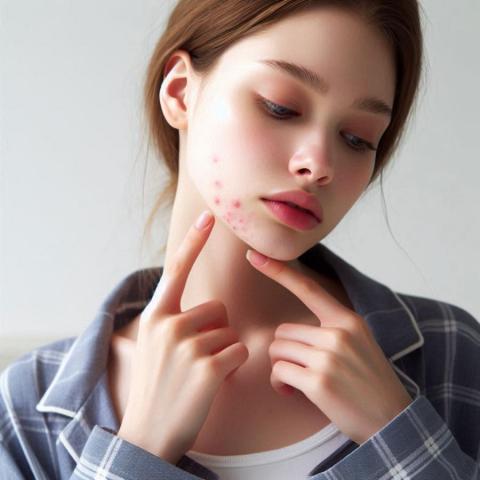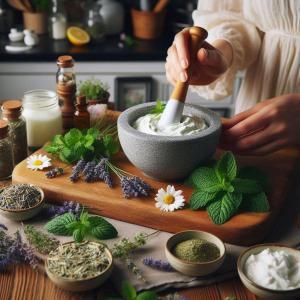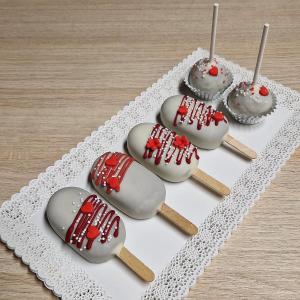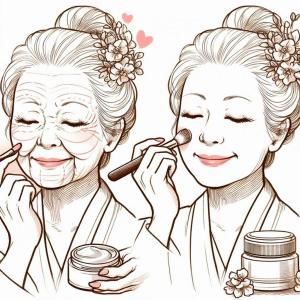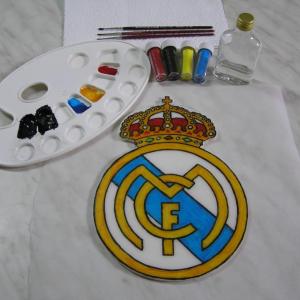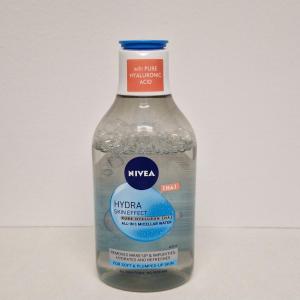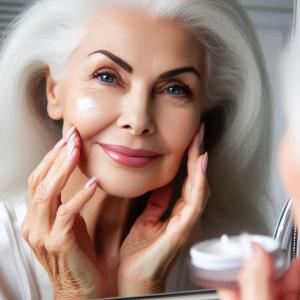Pimples, or acne, can be a frustrating skin condition. However, there are effective strategies and products to help manage and reduce them. Here’s a comprehensive guide to getting rid of pimples:
**1. ** Maintain Proper Skincare Routine
-
Cleansing: Use a gentle, non-comedogenic cleanser twice daily.
-
Exfoliating: Exfoliate 1-2 times a week to remove dead skin cells, using a mild exfoliant with salicylic acid or glycolic acid.
-
Moisturizing: Apply an oil-free, non-comedogenic moisturizer to keep your skin hydrated without clogging pores.
-
Sun Protection: Use a broad-spectrum sunscreen with at least SPF 30, especially if you're using acne treatments that increase sun sensitivity.
**2. ** Use Over-the-Counter Treatments
-
Benzoyl Peroxide: Helps kill bacteria and reduce inflammation. Available in various strengths, typically 2.5% to 10%.
-
Salicylic Acid: Helps unclog pores and reduce swelling and redness. Commonly found in cleansers and spot treatments.
-
Adapalene (Differin): A type of retinoid that helps prevent pores from becoming clogged.
-
Sulfur: Helps dry out the surface of the skin to absorb excess oil.
**3. ** Avoid Common Triggers
-
Touching Your Face: Avoid touching your face, as this can transfer bacteria and oils.
-
Picking or Squeezing: Picking can lead to scarring and further infection.
-
Heavy Makeup: Use non-comedogenic, oil-free makeup to avoid clogging pores.
**4. ** Consider Lifestyle Changes
-
Diet: Reduce high-glycemic foods and dairy intake if they seem to trigger acne.
-
Hydration: Drink plenty of water to keep your skin hydrated.
-
Stress Management: Practice stress-reducing techniques such as meditation or exercise, as stress can exacerbate acne.
**5. ** Seek Professional Help
If over-the-counter treatments are not effective, consult a dermatologist for prescription medications or therapies, such as:
-
Topical or Oral Antibiotics: To reduce bacteria and inflammation.
-
Oral Contraceptives: For women, certain birth control pills can help regulate hormones.
-
Isotretinoin (Accutane): A potent option for severe, resistant acne.
-
Procedures: Chemical peels, laser therapy, or light therapy may be recommended.
Best Creams for Pimples
When selecting creams for pimples, it’s crucial to choose products tailored to your skin type and the severity of your acne. Here are some of the best options:
**1. ** Benzoyl Peroxide Creams
**2. ** Salicylic Acid Creams
-
CeraVe Renewing SA Cream: Contains salicylic acid for exfoliation and niacinamide for soothing the skin.
-
Paula’s Choice Clear Regular Strength Daily Skin Clearing Treatment: With 2% salicylic acid, it helps to clear and prevent breakouts.
**3. ** Adapalene Creams
-
Differin Gel: A popular over-the-counter retinoid for acne treatment that helps prevent pimples from forming.
-
La Roche-Posay Effaclar Adapalene Gel: Dermatologist recommended for treatment and prevention of acne.
**4. ** Combination Creams
**5. ** Sulfur Creams
Application Tips
-
Patch Test: Always patch test a new product on a small area of your skin to ensure there’s no adverse reaction.
-
Start Slowly: Introduce new treatments gradually to avoid irritation, especially if using retinoids or high-strength benzoyl peroxide.
-
Follow Instructions: Use treatments as directed, typically applying a thin layer to clean, dry skin.
Final Notes
-
Consistency is Key: Results often take 4-8 weeks to appear, so be patient and consistent with your skincare routine.
-
Avoid Mixing Too Many Active Ingredients: Combining too many treatments can irritate your skin. Stick to a simple, effective routine.
For persistent or severe acne, consulting a dermatologist can provide you with personalized treatment plans and additional options tailored to your skin type and acne severity.
